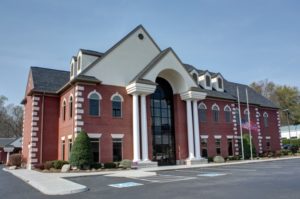Living Trust Lawyer Knoxville, TN
Living Trust Lawyer in Knoxville, TN

A living will can identify the procedures and medication that you do want to have, and others that you do not want to have if you fall into a comatose or vegetative state. And should you require life support, it addresses the question of whether you want those systems used, how long you want them used, and more. This will can also focus on where your wealth and assets can go, and how.
The living trust lawyers Knoxville, TN understand that your needs are going to differ and with our experience we are going to be able to help you create not only a living will but also a living trust. And we’re here to talk about the difference between will and trust, because maybe you’re confused about what they mean and when you want to have them.
Information About Wills & Trusts
Wills and trusts are not the same thing; but they are in a similar league of law. These are both estate planning tools that can ensure your assets are protected, and bequeathed to your heirs and spouse. This is not typically an issue, but there is an unlimited marital deduction provision in the United States of America that allows one to pass wealth to surviving spouses without incurring a gift or estate tax liabilities, if it is done properly.
This transfer process becomes more involved when the wealth is passed to the next generation, and it is possible to have both a will and a trust.
Your will is going to be a a written document that expresses your wishes as the decedent. This is ensuring that your children have the guardians you want if needed, objects and cash assets are gifted to friends and relatives or even charities. This will is only active after you die, whereas a trust is active the day it is created and a grantor may list the distribution of assets before they are dead, which they cannot do with a will.
You have irrevocable trusts that are most often created for tax purposes, and they cannot be altered after creation and you have living trusts that can be altered by the grantor. All wills have a legal process called probate.
The most common type of will is a testamentary will, which is a legal document that must be enforced regarding your affairs after death. There are other types of wills, such as holographic wills, oral wills, pour-over wills and more. The “how” when creating a will is not super important as long as you ensure it is a legal document, whether in video format, paper format or some other format of your choosing.
Reach out to your living trust lawyer in Knoxville, TN today to discuss the difference in a living trust and will, and what best suits your needs.
Knoxville Living Trust Accident Lawyer FAQs
Can I Include All My Assets In A Living Trust?
Real estate, bank accounts, investments, and personal property are commonly placed in a living trust. Including these assets helps ensure that they are managed according to your wishes during your lifetime and distributed as you have specified after your death. However, certain assets, such as retirement accounts and life insurance policies, require special consideration. Retirement accounts, like IRAs and 401(k)s, usually cannot be transferred directly into a living trust without triggering a taxable event. Instead, you can name the trust as a beneficiary of these accounts.
Can I Change Or Revoke My Living Trust?
Yes, if you have a revocable living trust, you can change or revoke it at any time while you are alive and competent. This feature provides significant flexibility, allowing you to adjust your estate plan as your circumstances change. Whether you need to add or remove assets, change beneficiaries, or update the terms of the trust, you can make these modifications to ensure that your trust continues to reflect your current wishes.
What Happens To My Living Trust If I Become Incapacitated?
If you become incapacitated, the successor trustee you designated in your living trust will step in to manage your assets according to the instructions outlined in the trust. This arrangement ensures that your finances are handled without the need for court intervention, providing a seamless transition and continuity in the management of your affairs. The successor trustee is legally obligated to act in your best interest and follow the terms of the trust, ensuring that your assets are used and protected as you intended.
Does A Living Trust Provide Protection From Creditors In Knoxville?
During your lifetime, a revocable living trust does not provide protection from creditors. Since you retain control over the assets in the trust, they are still considered part of your estate for creditor purposes. However, after your death, the assets in the trust can be structured to provide protection from creditors of your beneficiaries. This protection depends on how the trust is set up and the specific terms included to safeguard the assets from being claimed by creditors. If you are concerned about your debts, speak with an attorney Carpenter & Lewis PLLC, to learn about your options for relief.
How Does A Living Trust Avoid Probate?
A living trust helps avoid probate because the assets placed in the trust are legally owned by the trust, not by you as an individual. Upon your death, the successor trustee can distribute the assets according to the trust’s terms without the need for probate court proceedings. This process can save time and money, as probate can be lengthy and costly. Additionally, avoiding probate helps maintain the privacy of your estate, as probate records are public, while the terms of a living trust generally remain private.
A living trust can be a valuable part of your overall estate plan. You can learn more about how living trusts can be advantageous for you in a consultation with a Knoxville living trust lawyer from Carpenter & Lewis PLLC.
Carpenter & Lewis Probate Attorney Consultation:

For a consultation with one of the probate attorneys at Carpenter & Lewis, please call (865) 690-4997 or you may prefer to send an e-mail to: [email protected]. Consultations are by appointment only.

Request A Consultation
Client Review
“We own several businesses and have had the pleasure of working with Stephen and his team for over 9 years now. He always comes through in a pinch. They have assisted us with leases, estate planning, company formations and even landlord issues. I highly recommend them for all your business attorney needs!”
Mary Ellen Nichols
Schedule Your Appointment
10413 Kingston Pike, Suite 200
Knoxville, Tennessee 37922
New Clients: (865) 509-9600
Existing Clients: (865) 690-4997
Facsimile: (865) 690-4790
10413 Kingston Pike, Suite 200 Knoxville, Tennessee 37922
Also Serving: Farragut TN
New Clients: (865) 509-9600
Existing Clients: (865) 690-4997
Facsimile: (865) 690-4790
Estate Planning Lawyer Knoxville TN | Wills Lawyer Knoxville TN | Probate Lawyer Knoxville TN | Elder Law Lawyer Knoxville TN | Estate Settlement Attorney Knoxville TN | Wills Lawyer Farragut TN | Trust Lawyer Farragut TN | Probate Lawyer Farragut TN | Estate Planning Lawyer Maryville TN | Probate Lawyer Maryville TN | Wills Lawyer Maryville TN | Elder Law Lawyer Maryville TN | Trust Lawyer Maryville TN | Small Business Lawyer Madisonville TN


